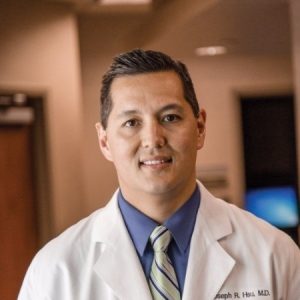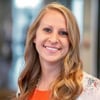Spaugh Dameron Tenny is excited to sponsor Sarah Peirrie, MD, an Orthopedic Surgery resident at Atrium health, to join Joseph R. Hsu, MD, on his annual trip to provide orthopedic training in Honduras. Their trip to Honduras through the RESTORE Foundation began on Sunday, April 29th.

RESTORE stands for Reconstructive Surgery and Transmission of Operative Resources and Education, founded by Joseph R. Hsu, MD. The foundation of RESTORE is a partner of Atrium Health and began in 2011 through humanitarian work, as part of medical readiness missions for the US Army at Hospital Escuela in Tegucigalpa, Honduras. Dr. Hsu is an Orthopedic Trauma Surgeon and Director of the Limb Lengthening and Deformity Service at Atrium Health’s Carolinas Medical Center.. He is also the founder and director of RESTORE.
Before Dr. Hsu left for the RESTORE trip, we were able to sit down with him for a Q & A session about his humanitarian efforts in Honduras. Read Dr. Hsu's answers below:
Several years ago, I went to Honduras for Army medical readiness training. The point of the training was to practice treating patients in a low resource environment. I realized there was a need to provide training resources for the Honduran surgeons so they could treat patients on their own. When the temporary US Army missions were over, we were leaving Hondurans with little resources to operate in a super busy trauma center. The Honduran hospital needed a long-term relationship with specialized trainers who could teach their surgeons how to treat limb deformities. Pediatric diseases commonly became worse as patients grew up without treatment, resulting in severe infections. As I started the RESTORE program in 2011, my plan was to be obsolete within 10 years, so the Honduran hospital could operate without us. After seven years of one to two trips per year, I feel that I’m getting close to my goal of being obsolete. To my surprise, the Honduran surgeons have become so good at their practice that they teach the US residents, which has been an interesting evolution.
I’ve gone to Honduras ten to twelve times since 2011, traveling there once or twice a year. I have gone on about eight RESTORE trips and a few other education trips. I still don’t speak Spanish after all this time, luckily the medical practitioners at Hospital Escuela speak English very well.
This is the first official RESTORE trip with a civilian, when I was in the US Army, I took military residents with me on the RESTORE trips.
I am very selective when choosing residents to accompany me on the RESTORE Trips. My hope for residents on the RESTORE trip is to inspire them to develop a relationship with Hospital Escuelal or another hospital in need, to participate in educating those in a low resource environment. We bring a minimum amount of equipment and leave the equipment as a donation. During these RESTORE trips, we teach the Honduran surgeons how to use that equipment with the techniques we teach them. If we were to take the equipment back with us, the surgeons would be left with techniques that would be hard to implement without the specific equipment, in such a low resource environment. We also don’t have to stress about traveling with heavy equipment and we can leave, knowing the surgeons can treat patients without us.
I know Dr. Peirre will help our organization progress to meeting my initial goal of being obsolete in 10 years. I want Dr. Peirrie to learn how to sustain a low resource hospitals' operation through education and ethical practices, so that when we leave, the surgeons are advancing to to aid the thousands of patients they see without our presence.
I’m most excited to take a civilian for the first time, especially since Sara is trainee of the Limb Lengthening and Deformity Service program at Atrium Health, which I am the director of here in Charlotte. During this trip, Sara is responsible for tweeting about our activity and putting together a presentation to share with others upon our return to the States.
________________________________________________________
Dr. Hsu highlighted the word "sustainable" when explaining how RESTORE is unique in the medical mission work space. Relying little on equipment, and instead giving knowledge to the Honduran surgeons so the work is “now in their hands,” is important to him. Dr. Hsu humbly mentioned their amazing follow up cases when they return to Honduras, after the surgeons have had time to implement training from previous trips. Dr. Hsu said, “The Honduran surgeons are proud and want to show me what they’ve done with the techniques I taught them.”
GoToGrow Scholarship Winners Take Their Passions to Haiti
2nd Round of Medical Service Trip Scholarships
Internal Medicine Resident Serves in Nicaragua
CRN202005-230426

Molly was the marketing director at SDT from October 2017 through November 2020. She is passionate about connecting with people, digital marketing, and serving her community.
When physicians accept a job offer from a hospital, they are often enticed with a signing bonus in the form of a forgivable loan. Given all the ...
Read More →The benefits of charitable giving extend beyond helping others. Consider making charitable contributions as 2023 comes to a close and discover ways ...
Read More →Acronyms make up the language of the healthcare ecosystem. CMS, HIPAA, CPT, and RVU…to name just a few!
Read More →